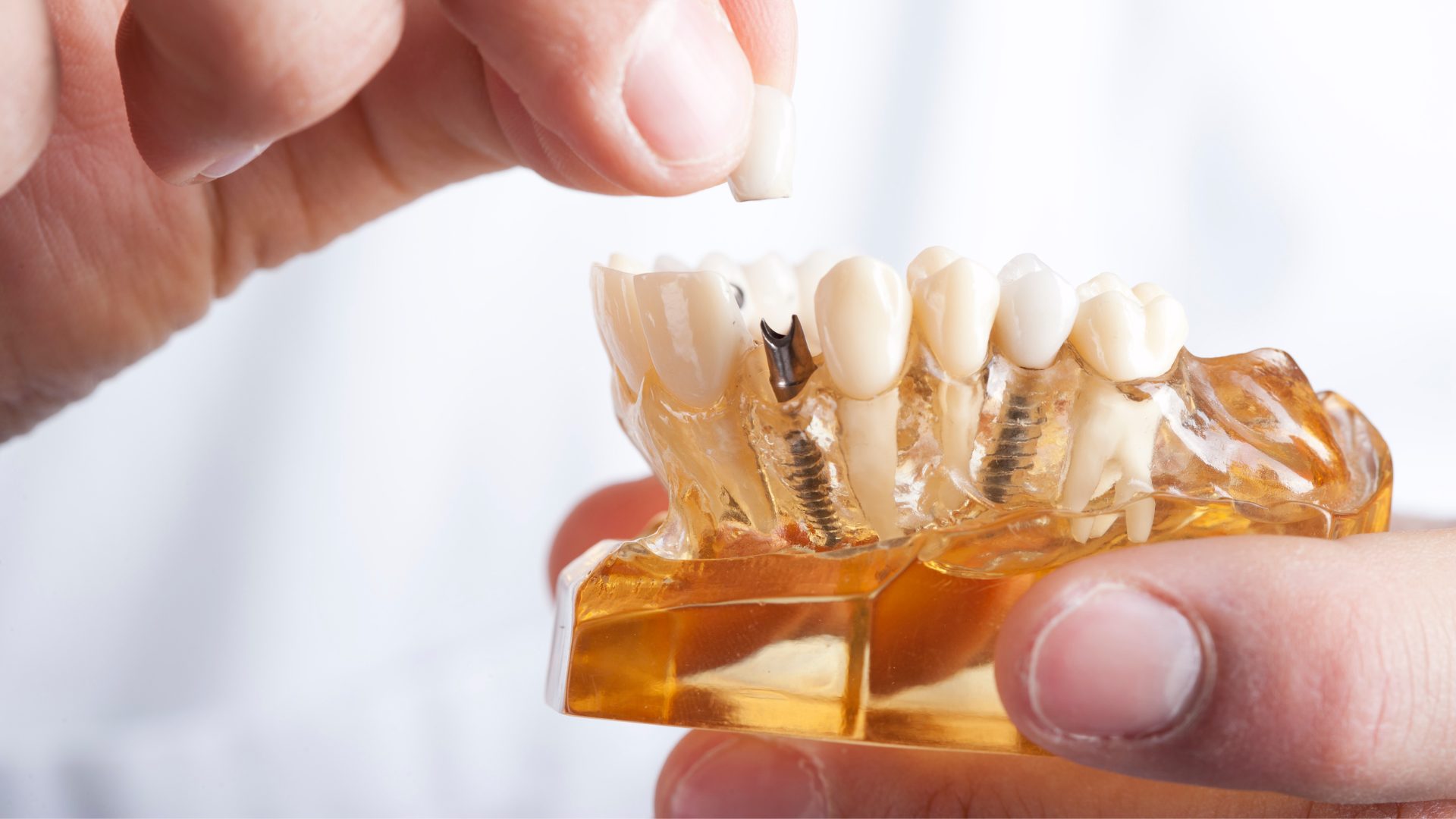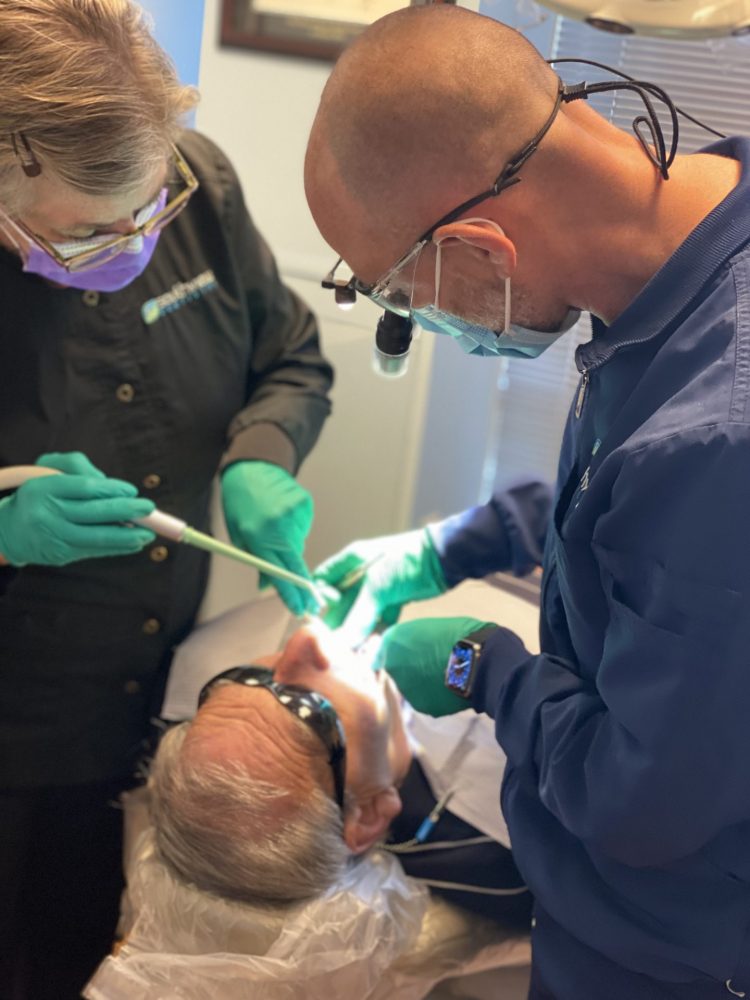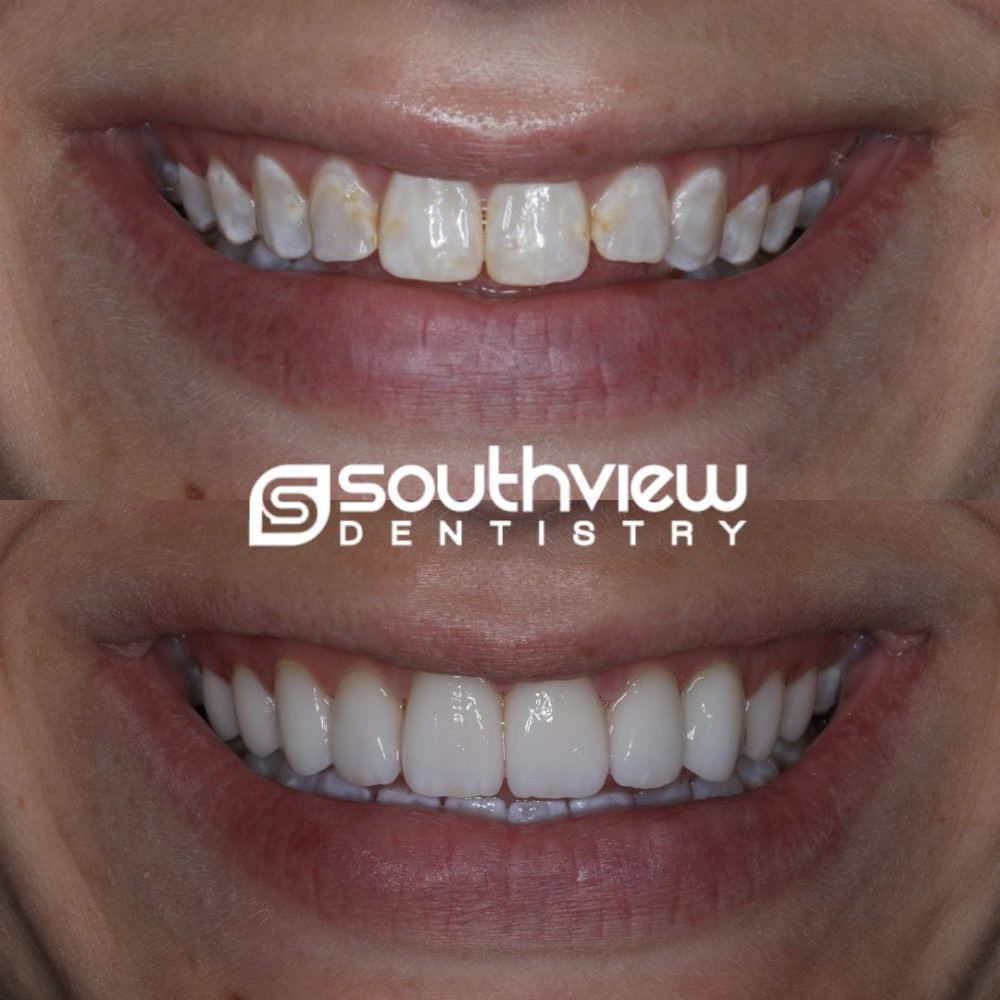
Are Dental Implants Painful?
October 3, 2022
Who Is A Good Candidate For Dental Implants?
November 23, 2022Key Takeaways:
Materials and Types:
Veneers are typically made of composite resin or porcelain, each offering different benefits like durability and appearance. Composite veneers are sculpted during a single visit, while porcelain veneers last longer and look more natural.
Uses:
Veneers improve the appearance of discolored, cracked, or uneven teeth, enhancing smile aesthetics.
Longevity and Care:
With proper care, veneers can last 10-15 years, and porcelain ones may last up to 20 years.
If you don’t like the appearance of your teeth or your smile, you may be interested in learning more about veneers. Dental veneers are used to fix a variety of cosmetic issues and often are among the most cost-effective ways to restore a confident smile.
We hope this “veneers FAQ” will answer some of the questions you may have about this cosmetic treatment option. Please keep in mind this FAQ is for educational purposes; every aspect of dental care, especially cosmetic dentistry, is specific to the individual’s needs.
What are dental veneers?
Veneers cover the front surface of the tooth to improve or enhance its appearance. They are made from a tooth-colored material and bonded to the tooth.
What materials are used for veneers?
Depending on your needs and budget, there are a couple of types of veneers, including composite veneers and porcelain. Composite veneers are made from tooth-colored composite resin and can be sculpted to the tooth. As the name implies, porcelain veneers are made from thin shells of porcelain. In the hands of a skilled dentist, both can look natural but fulfill different needs.
How do I choose the right type of veneer?
Great question! The best way to choose whether veneers are right for your needs as well as the type of veneer is by scheduling a consultation with a dentist. Whether composite or porcelain is right for you varies depending on the following:
- Your budget
- Why do you want veneers, for example, to change shape, color, and/or repair damage
- Which teeth need the veneers
- Whether there is a possibility you may want to go back to natural teeth
Porcelain veneers usually last longer, and many believe they look more natural since the material looks like a tooth. Porcelain is also more stain-resistant. The application process is more involved, so they usually cost more.
Composite veneers can usually require one visit. As a result, they are often less expensive but are not quite as durable or stain resistant as porcelain. However, they are especially useful to smooth out cracks, ridges, or other minor damage to a single tooth since these veneers can be molded or sculpted to the tooth.
The best way to learn more about the possibilities and which option is best for you is by seeing a dentist who specializes in veneers.
Why are veneers used?
Dentists use veneers to improve the way a tooth or teeth look. They are used to improve the appearance of:
- Teeth that are deeply stained or discolored teeth
- Fractured or cracked teeth
- Broken or damaged teeth
- Teeth with a shape you do not like
- Teeth that are disproportionately sized, especially if small or short
- Teeth with a wide gap between them
- A variety of other cosmetic issues specific to one or a few teeth
How long do veneers last?
This depends on the material, the placement of the veneer, and how well you take care of your teeth. Typically veneers last 10- 15 years. However, if you take good care of your teeth and avoid dental trauma, including accidents or tooth grinding, they may last longer. Sometimes porcelain veneers may last as long as twenty years.
Is there a downside to veneers?
There are usually pros and cons to any medical, dental, or cosmetic procedure. Talk with a trusted dentist to assess whether the pros outweigh the cons for you. One downside to veneers is the application process typically involves removing a small amount of tooth enamel. Your tooth enamel protects your teeth.
Do veneers break easily?
Much like your natural teeth, veneers can break. While we wouldn’t say they “break easily,” it is important to make efforts to minimize the risk of damaging or breaking both your veneers and your natural teeth. This includes:
- Wear a mouthguard while playing sports, especially contact sports or activities involving flying objects like racquetball.
- If you grind your teeth at night, wear a nightguard to protect them.
- Wear your seatbelt when riding in a car and a helmet when biking or scooting.
- Don’t use your teeth as tools to open packages, clip your fingernails, open bottles, etc.
- Avoid biting down on overly hard objects like ice, nut shells, or olive pits.
Can you go back to normal teeth after veneers?
Veneers can be removed, but the answer depends on the type of veneer and the condition of your teeth. If you have composite veneers, you are more likely able to return to natural teeth since the composite is molded to your teeth. With porcelain veneers, probably not since the process involved removing some tooth enamel to create a surface to attach the veneers.
What can I expect to happen when getting veneers?
The answer depends on whether you are getting porcelain or composite veneers. Porcelain veneers typically involve multiple visits, but this varies depending on your dentist. Your cosmetic dentist will plan your new smile. This involves photos and models of your teeth.
At Southview, we take digital impressions. Once the plan has been made, the teeth are prepared for temporary veneers. These temporaries are made to resemble your final veneers so you can take them for a test drive. Temporaries are great to make sure you like the new look: shape, color, size, and function. While you are in your temporary veneers, the laboratory will fabricate the final beautiful porcelain veneers, and they will be permanently bonded to your teeth at the next appointment.
Composite veneers usually just require one appointment since they are sculpted to the tooth. They require the removal of minimal tooth structure to create a surface to be bonded, similar to porcelain veneers.
How do I learn whether veneers are right for me?
Not one single treatment is right for every individual. The best way to learn whether it is right for you is to see a skilled cosmetic dentist with experience applying veneers.
Talk with the dentist about your hopes and concerns. The dentist will also assess the condition of your teeth and overall oral health. People are often amazed at what veneers can do to fix small dental issues that make you feel self-conscious about the way your smile looks.
At Southview Dentistry, we aim to make every Charlotte, NC resident feel proud of their smile. Contact us today to know more!




